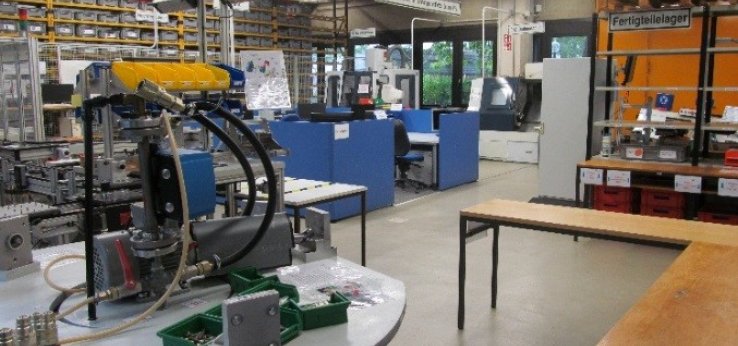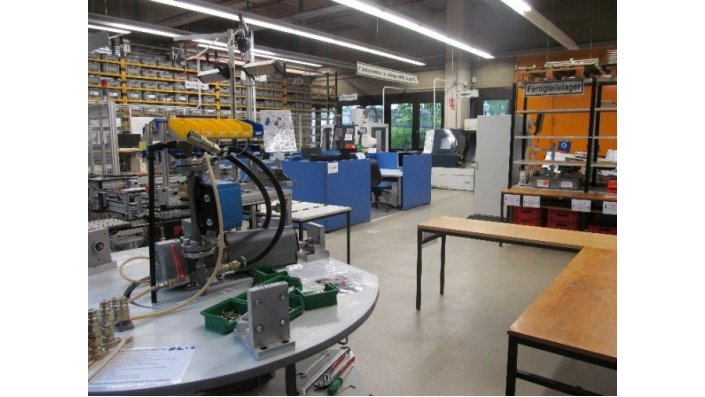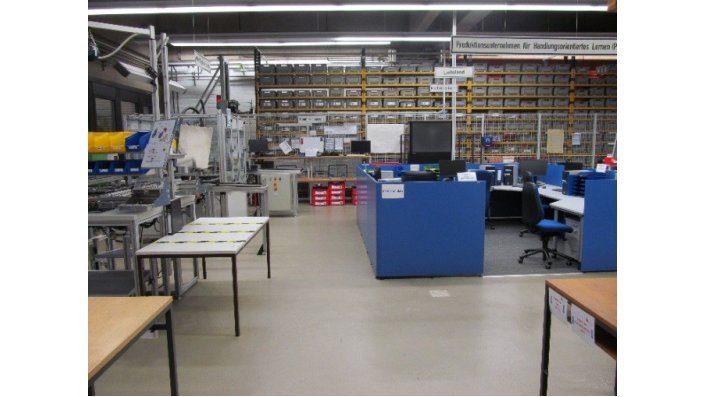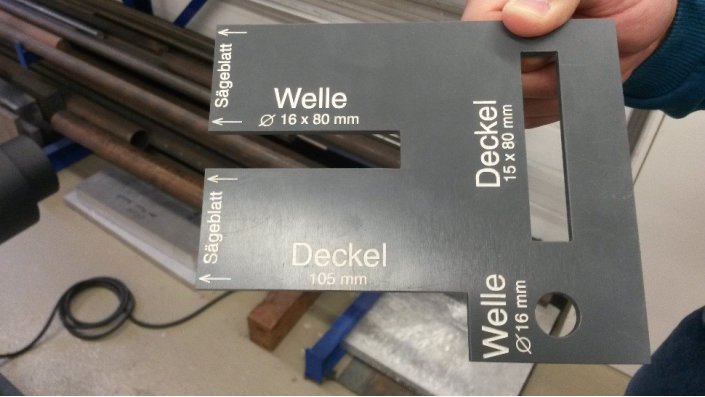Modellfabrik (Model factory)
The model factory produces gear pumps and hydro-gear motors, like the ones that are manufactured by renowned German quality companies. The production range of the model factory includes swivel vane vacuum pumps, peristaltic pumps, fuel pumps as well as hydro-gear motors, of which some of them are produced in different versions.
Knowledge transfer is usually quite theoretical, so that often only a few or no references to industrial practice are provided. In this learning factory, on the other hand, structures and processes can be tested and optimized according to current business, organizational and logistical principles. In the model factory students of TH Köln as well as employees from industrial companies can experience how problems are identified and analyzed in practice. In addition, they learn which steps are necessary to efficiently find solutions that take into account the ideas of all participants. This allows the training participants to gain practical experience, apply their theoretical knowledge and acquire new skills. Practical learning and teamwork in the model factory are integrated into a continuous pedagogical overall concept.
By including the model factory in teaching and training, theoretical knowledge can be applied in a practical way. Thus, students, employees and managers can learn how parts for real gear pumps and hydro-gear motors are procured, manufactured and assembled. They also learn how the logistical processes should be designed to ensure efficient information and material flows. Avoiding errors by applying the Poka Yoke principle is of fundamental importance in this context.
Students and employees from companies learn how to optimize the manufacturing process of pumps and hydraulic gear motors under business, organizational and logistical aspects.
If one walks "backwards" through the factory from the customer's point of view, it has a dispatch area, quality assurance, an assembly area, a high-bay warehouse, a fibre laser, a CNC lathe, a horizontal band saw and a production control center (pictures 1 and 2 give an overview).
Process stages in the model factory
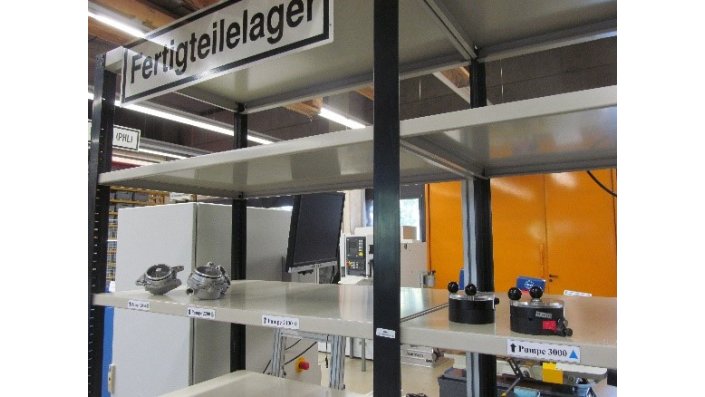 0 / 0
0 / 0
In the dispatch area, the finished pumps and hydraulic gear motors are prepared for dispatch to the customers after they have been manufactured. (Image: TH Köln)
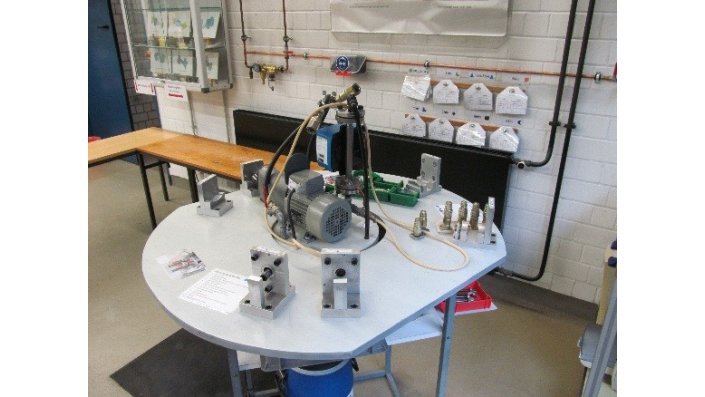 0 / 0
0 / 0
The quality assurance ensures a high-quality standard corresponding to customer requirements. A flow tester is used to check the quality parameters of pumps and hydraulic gear motors: functionality, tightness and flow rate. (Image: TH Köln)
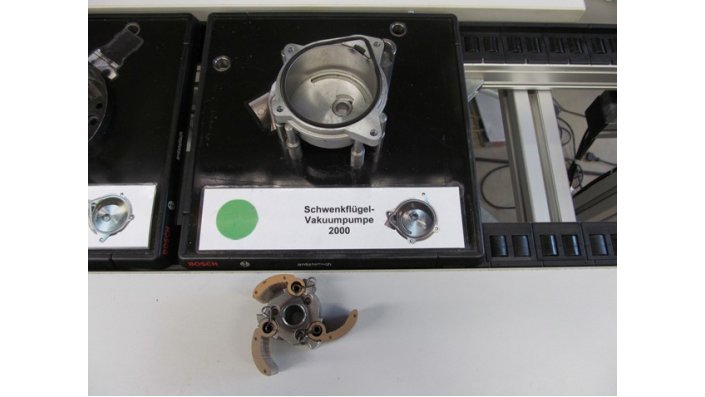 0 / 0
0 / 0
During the assembly, pumps and hydraulic gear motors are assembled using components manufactured in-house or purchased from third parties. The pumps and hydro-gear motors are assembled on special assembly equipment with a pneumatic screwdriver using exploded drawings and illustrated assembly instructions. Visualization of the required parts in the work instructions and on the boxes simplifies the assembly process and helps to avoid assembly errors. (Image: TH Köln)
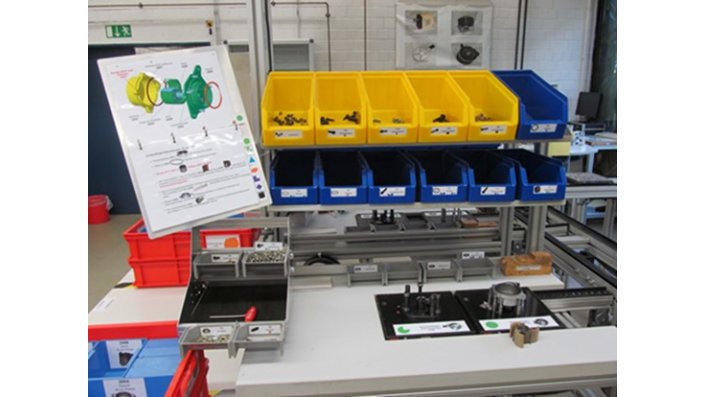 0 / 0
0 / 0
In the assembly area, A and B parts are provided for individual customer orders. The C parts, on the other hand, are provided as bulk material in diagonally arranged boxes in a customer-order-neutral manner. (Image: TH Köln)
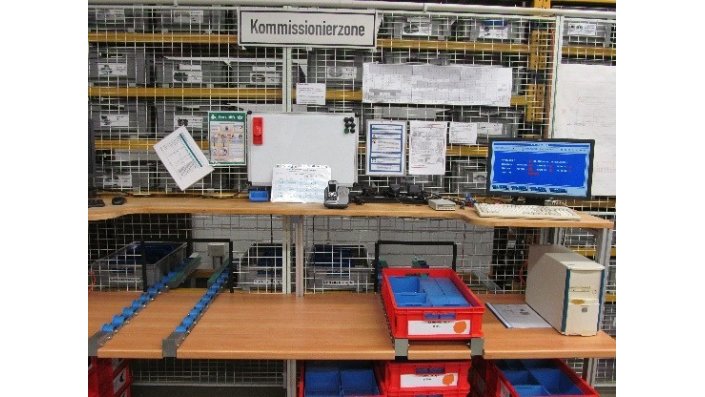 0 / 0
0 / 0
In the high-bay warehouse, both internally manufactured and externally procured components and assemblies are available. They are stored, retrieved and commissioned according to the production orders. In the commissioning department, the individual parts are assembled according to the orders and then taken to the assembly department. A poka-yoke keyboard for error avoidance ensures that physical storage and retrieval as well as the EDP technical processing are sensibly coordinated and errors are systematically avoided. (Image: TH Köln)
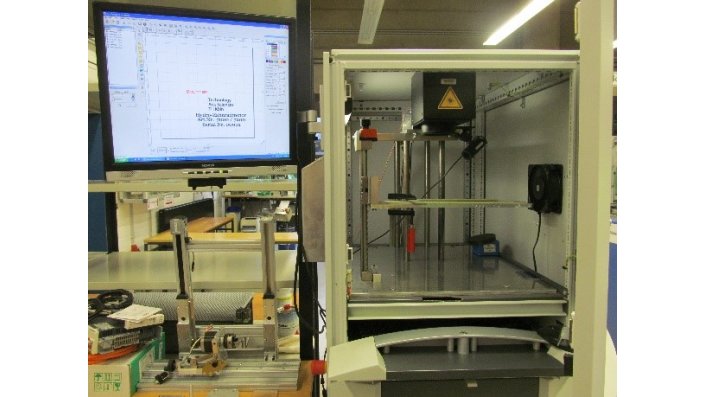 0 / 0
0 / 0
With the fiber laser, products can be labeled individually for each customer and logistical markings can be made. The fiber laser operates with a maximum optical output power of 11.1 watts and a minimum focus diameter of 35 µm (laser focus) at a distance between lens and focus of 160 mm. The working range is between 100x100 mm and 110x110 mm. (Image: TH Köln)
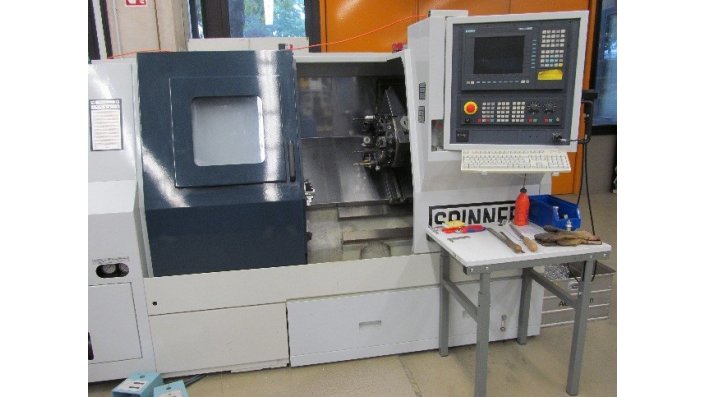 0 / 0
0 / 0
The aluminum shafts for the swivel vane vacuum pumps are manufactured on the CNC lathe. (Image: TH Köln)
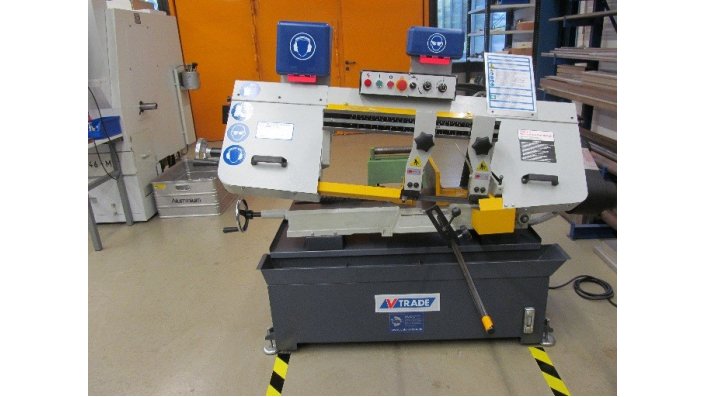 0 / 0
0 / 0
The horizontal bandsaw is used to cut pump shafts from round profiles and pump covers from square profiles. (Image: TH Köln)
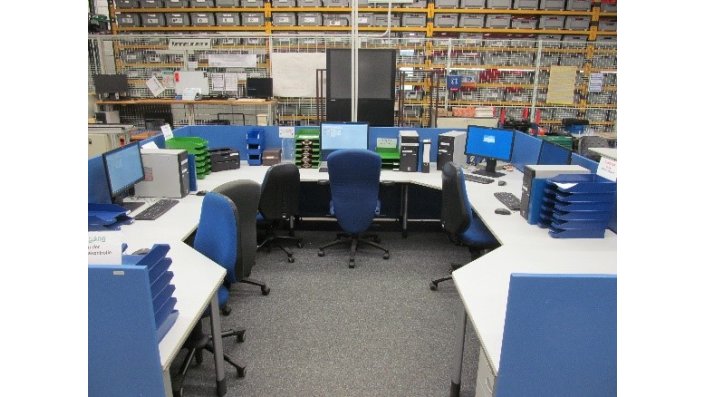 0 / 0
0 / 0
The control center takes over the administrative activities in the model factory. This is where customer orders are accepted, production orders generated and the production program planned and controlled. In addition, the control center is responsible for placing orders for materials. Furthermore, quality assurance also provides feedback to the control center. (Image: TH Köln)
Teaching in the model factory
In training courses in the model factory, the participants (i.e. students and employees from companies) can be taught logistical interconnections between different operational functions. Job rotation enables them to gain a practical insight into the various functions of a production company. Alternatively, participants can also experience learning curve effects by staying at their workplaces during the production runs. In doing so, they will notice how more and more practice increasingly improves their performance (in for example output and quality).
In the study program, the model factory is primarily used to identify and develop rationalization potential in the sense of LEAN production. For this purpose, the procedures that are common in company practice are applied. The main topics show a wide variety and range from 'Rationalization of the model factory', 'Green model factory', 'Automation in the model factory', 'Flexibility and efficiency in the model factory' and 'Industry 4.0 in the model factory' to the main topic 'Safety in the model factory'. Project papers have been written on these topics and the solutions developed have been visualized with small three-dimensional models.
The topics were developed in three successive steps:
- as-is analysis to identify the main potential for improvement,
- target concept to clarify the optimization approaches
and finally
- drawing up an action plan with an estimate of the necessary personnel, time and financial resources.
By applying this procedure, students and other participants in the training courses learn to systematically analyze and specifically optimize the most important relevant processes of a production plant. The practice-oriented processing of problems in groups also promotes the ability to work in a team. In all practical activities in the model factory, great importance is also given to a clear focus on the optimal fulfilment of customer requirements in logistical project management.

